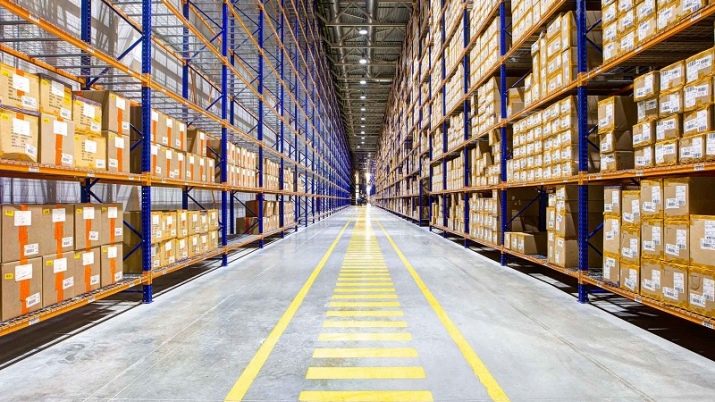Who is a logistician and what does he do?

In a globalized world where the economy depends on the timely and inexpensive supply of various goods and components, it is extremely important to establish the correct, convenient and profitable channels for transporting goods. This task is so important, and the relevant specialists are so in demand that there is a separate specialty dedicated to working out routes. Professional logisticians are engaged in this task today.
Who is that?
The profession of a logistician presupposes a full-fledged thought over the delivery of goods from point A to point B with a minimum investment of time and money. The logistician is studying the existing proposals for cargo transportation in order to find contractors capable of delivering with a minimum of congestion. If overloads cannot be avoided (and in most cases it is), the task of the logistician is to find profitable warehouses at transshipment points without delaying the goods and without increasing the cost of the trip.
The professional standard assumes that when crossing borders, the logistician also draws up all the necessary documents. A freight forwarder is a logistician who not only plans the trip, but also accompanies the goods along the entire route.
Thus, it is a humanitarian profession that involves a lot of calculations.

Advantages and disadvantages
As with any profession, the job of a logistician has its own advantages and disadvantages. It is worth choosing it for the following features:
- higher education as a logistician is necessary, but you can start a career even in your student years;
- an ordinary logistician can always grow to the head of the supply department, head a regional division of his own company, or even the entire company;
- labor in the field of logistics is not routine, it always presupposes the emergence of new nuances.
If you are already fascinated by a specialty and only want to get it, make sure you know about all the pitfalls:
- the delivery is planned by the logistician, which means that it is he who is always to blame for its disruption or delay, even if force majeure actually occurred;
- due to the duty of the service, the logistician is supposed to fuss, control the process at all key points, so the work is not easy both psychologically and even physically;
- It is wrong to refer a logistician to office plankton - he spends a significant part of his time in warehouses, where conditions are not always comfortable.

Types of logisticians
Logist is just a very general name for a whole range of professions associated with sending, delivering and receiving goods. Let's consider what narrow specialists are in this area, and what exactly they do.
Logistic Forwarding
Delivery of goods from anywhere from abroad is rarely possible without overloading - the full route includes several points of transshipment and storage in warehouses in several places. The driver of a third-party transport company or the operator of a warehouse owned by a third party does not see the full route scheme, is not interested in the strict observance of the plan of the logistician, who will be to blame if something goes wrong on the road.
A freight forwarder is an official who accompanies the cargo on the way and monitors the timely passage of all planned stages, as well as decides to send it by an alternative route if force majeure occurs along the main route.
Logistic economist
A specialist at the junction of economics and logistics in his calculations and route planning is based primarily on the economic component. Very useful in situations where border crossing is not foreseen, or it is possible with a minimum of formalities.

Logistics Engineer
Another profession that involves additional specialization, in addition to logistics itself. There are cargoes that cannot be simply loaded into containers, wagons or trucks - they can be oversized, do not pass through the streets in urban environments, require special transportation conditions (for example, low temperatures). A logistics engineer is a person whose main task is to solve all the listed problems along the way.
Military logistician
Globally, a military logistician does not fundamentally differ from a civilian one, it is just that the goods that he must deliver have a military purpose. This feature already imposes some additional responsibilities on the route planner. - sometimes the transfer of equipment must be carried out in such a way that as few people as possible know about it, and it is always necessary to take special care of the safety of the process, the safety of the goods.
Logistic operator
Such a specialist is akin to a therapist in medicine - in the eyes of an inexperienced client, he by himself does not know how, but only redirects the consumer of the service to narrower specialists. In fact, such an employee works in the structure of a large logistics company, taking orders and drawing up a kind of roadmap for organizing transportation. The client can rarely formulate a request more difficult than “delivery from point A to point B of such and such a product”, and the operator already distributes the order between engineers, economists and customs brokers dealing with the technical, financial and cross-border sides of the issue.

Storekeeper
Correct management of a large warehouse also presupposes certain skills of a logistician - such an employee must be an analyst, know which product should be sent first, how to place it correctly on the territory of the warehouse, so that it is convenient.
In a large warehouse with a constant change of incoming and outgoing goods, it is absolutely important to ensure that the transshipment takes place in a short time and without extra effort.
Other
Depending on the specifics of the company and the goods that it purchases or sends, the position of the logistician can be called differently, respectively, the functions of such an employee will also differ. For example, a procurement logistician deals with the comparison of prices from suppliers and the cost of delivery of goods, because purchasing a cheap product from the devil on the streets is not always profitable due to expensive transportation.
The foreign economic logistician was initially geared towards taking into account various customs formalities, both in terms of costs and in terms of existing restrictions on the import of a certain product. Thus, when choosing a vacancy, it makes sense to carefully read the job description for a specific position in this company.

Functional responsibilities
In the classifier of professions, the exact competence of the logistician is not indicated - it all depends on how the employer sees the field of activity of the employee. The main task, formulated in very general terms, is to ensure the delivery of goods from point A to point B with a minimum investment of time and money.
In more detail it may look like this:
- be keenly interested in the transport industry and the current tariffs of carriers;
- timely and regularly calculate the cost of transportation, taking into account possible innovations from third parties;
- make at least two route options, be prepared for a possible force majeure and its operational overcoming;
- control the delivery process to the smallest detail;
- be engaged in drawing up the logistic part of the company's budget, keeping records.
Knowledge and skills
To be a good logistician, you must have certain business and personal professional qualities, be able to use the available tools, namely:
- be an active and persistent negotiator, convinced of a positive outcome;
- be able to cover the entire process of moving goods at a glance;
- understand the current situation on the transportation market, always keep abreast;
- strive to demonstrate hard work and a willingness to continually learn;
- have knowledge about potential suppliers of the desired goods and warehouse infrastructure along the possible routes;
- own specialized software;
- to be able to communicate with people, to have oneself, to state their plans unambiguously;
- own as many foreign languages as possible.

Rights
The activity of a logistician gives him certain rights that he is obliged to use to achieve this goal. Here they are:
- command subordinate services on behalf of the company, establishing supply chains;
- to request from representatives of other structural divisions of the company information that allows you to draw up a more complete picture of the need for organizing supplies;
- negotiate purchases or supplies, fully representing your own company;
- propose improvements or innovations that will improve the quality of the logistics department.
A responsibility
The specialty of a logistician a priori assumes a significant amount of responsibility and, first of all, for the adequate and timely fulfillment of one's own duties. The normal operation of any enterprise depends on timely deliveries, so the logistician has no room for error - he is obliged to take into account potential force majeure and take proactive measures to prevent them, and if a delay does arise, notify his superiors in time.
A separate area of responsibility is labor protection, since the logistician spends part of his working time in warehouses. The specialist is obliged to monitor compliance with safety measures and promptly report violations if he cannot eliminate them on his own.

Education
Logistics presupposes the preliminary passing of training under the program of secondary technical education at a college or higher - at a university. After the 9th grade, it is possible to enroll in a logistics specialist only in college, after the 11th grade, all educational institutions are available. Although you can start working in a profession during your student years, becoming a professional at home will not work.
If you want to be a logistician, pay attention to the following specialties, which are taught in each region of the country:
- management of logistics and supply chain management;
- trading business;
- technology of transport processes.
You should prepare for the exam in subjects such as Russian, mathematics, social studies, and English. Specialists who have studied abroad or have undergone retraining in their specialty are in special demand in the labor market.

Place of work
Today, logistic services are needed for any enterprise or production that purchases goods or materials further than in a neighboring store. Another thing is that companies with a small workforce do not have their own logistician, therefore, in a conventional car dealership, logistics planning is outsourced to specialized companies. Accordingly, certified logisticians most often work in logistics and trade companies or in warehouses., less often - at large enterprises where their own logistics department (for example, a sales department for finished products) exists.
It is difficult to get a job without experience in any field, especially if it is not Moscow or St. Petersburg, and the choice of jobs is not so wide. Then the easiest way is to start from where you and your classmates underwent practical training - even if the same company is not ready to hire you, you should pay attention to companies with a similar field of activity.

Prospects and career
One of the most important advantages of working as a logistician, in addition to the demand for such specialists, is the possibility of career growth - at least in a large company. Large firms with their own logistics departments are often ready to invest in the upbringing of the next generation of professionals, therefore they recruit even inexperienced employees for an internship position, who will eventually replace retired specialists.
Since logistics largely reveals the organizational skills of a person, a good, able-bodied logistician, distinguished by efficiency and intelligence, in the eyes of a manager, is himself a good leader, so the first step up the career ladder is to head your own department. In the future, a talented organizer, able to devote most of his life to work, can finally reorient himself to management positions. If you see that the success of the company largely depends on you, but the management is not able to appreciate it at its true worth, you can always start your own business using the experience gained.
How much do they earn?
The salary of logisticians in Russia is predictably a very flexible concept - it all depends on the region, the scale of the company in which you work, as well as the exact list of your responsibilities. The average salary of a newcomer who has just graduated from training outside the capital is about 25-30 thousand rubles, which is quite modest, but above we have already considered the prospects for career growth in such a job. An employee who has proven himself well, on time moved to work in a larger company, receives much more - his monthly income can reach 70-90 thousand rubles.
The amounts described do not include wages for those who work abroad, regardless of whether for a Russian company or a foreign one. Employees whose direct activities have gone international can receive significantly higher salaries, and even 2.5 thousand dollars a month is not the limit for them.

Review overview
Most commentators on various forums on the Internet urge not to be fascinated by the profession of a logistician, because it is suitable only for a certain circle of people and cannot at all be considered as simple as it seems to someone. They focus on the fact that a top logistician with a steep salary does not really have a vacation - no company will let go of the person on whom absolutely all deliveries are tied.
Cope with great responsibility and constant stress of the mind, as a rule, is easier for the stronger sex - this is another remark that is very common in discussions.
Finally, many people complain that the work is still not very diverse - in most cases it is necessary to recalculate many times what was calculated earlier.









